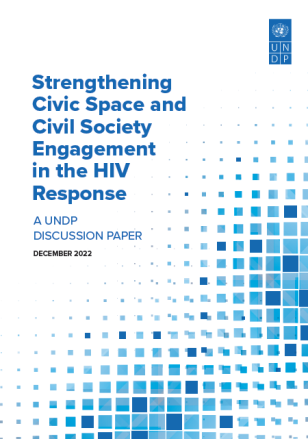Strengthening Civic Space and Civil Society Engagement in the HIV Response

Strengthening Civic Space and Civil Society Engagement in the HIV Response
December 8, 2022
UNDP’s Strategic Plan 2022–2025 and HIV and Health Strategy 2022-2025 view open and inclusive civic spaces as central to achieving broader structural changes to build resilient societies able to respond to conflicts and crises and ensuring that no one is left behind.
The meaningful engagement of civil society is critical for successful responses to end AIDS and promote health and well-being for all. Shrinking civic space at the national, regional and international level blocks opportunities for civil society to advocate for health and human rights, monitor access to services, claim redress for rights violations or reach those left behind with health and legal support services.
The 2030 Agenda, UNDP Strategic Plan 2022-2025, 2021 Political Declaration on HIV and AIDS, Global AIDS Strategy 2022-2026 and other international frameworks and commitments can be leveraged to create significant opportunities for the protection and promotion of civic space.
This discussion paper describes the current state of civic space and provides recommendations to strengthen it and civil society engagement in the HIV response.

 Locations
Locations